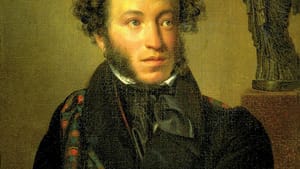Stay in the Loop
BSR publishes on a weekly schedule, with an email newsletter every Wednesday and Thursday morning. There’s no paywall, and subscribing is always free.
Small but necessary
Philadelphia Chamber Ensemble and Fine Art Music Company

In a piece he wrote about me last September, Dan Rottenberg referred to the “little musical groups that Tom has celebrated for decades while the Inquirer largely ignored them.” While that’s certainly a true statement, it’s not quite the way I would put it. I have never thought of myself as a champion of small local groups.
My major musical interests are early music, chamber music, and new music. I write about the smaller groups because the groups that operate in those areas tend to be small. The local organizations that play early music and new music may have national and even international reputations, but they appeal to niche audiences. Early music groups, in addition, play music that was mostly written for small ensembles.
The big exception to this connection between size and my personal interests is the Philadelphia Chamber Music Society. A reviewer who specialized in chamber music could keep busy writing about the 60 concerts, usually featuring star players, that PCMS puts on each season. PCMS has become one of Philadelphia’s major cultural institutions, but I feel the small local groups still have a place. They all have special strengths.
Last weekend I hit concerts by two local chamber groups, one a veteran and one a relative newcomer.
A veteran pickup band
The Philadelphia Chamber Ensemble is now in its 39th season. All of its members come from the Philadelphia Orchestra, where many of them occupy principal and associate principal positions. It includes musicians from every section of the orchestra, which gives it the ability to schedule music written for any combination of instruments.
Much of the music the Chamber Ensemble programs can only be played by the kind of pickup bands you can pull from an orchestra. In April, for example, at their third and final concert of the season, they’ll start with a Vincent Persichetti serenade for flute and harp and end with Conradin Kreutzer’s Grand Septet for clarinet, bassoon, horn, string trio, and double bass.
For the concert I took in, the ensemble contented itself with a somewhat narrower instrumental palette. The grand finale in the second half was, in fact, a straight string quartet — the beautiful, melodious quartet Alexander Borodin wrote as an anniversary present for his wife. The first half, on the other hand, opened with a Mozart fragment for clarinet and string quartet; hopped to a 20th-century French piece for violin, clarinet, and harp; and finished with the quintet for bassoon and strings that the orchestra’s retired principal bassoon, Bernard Garfield, wrote when he was studying composition.
No one is going to form a group that can tour the international chamber circuit playing that kind of programming. Yet most of the works on both programs belong in the same league with the string quartets and piano trios that constitute the core of the standard chamber repertoire. If we didn’t have groups like the Chamber Ensemble, most of us would never hear live performances of works like the Kreutzer septet.
Not lost in translation
The Fine Art Music Company is a younger organization that performs concerts — usually with a social theme — at the Ethical Society on Rittenhouse Square and Ivy Hall in West Philadelphia. Their latest offering spotlighted Russian music, with a program that included nine songs by Russian composers based on poems by Russia’s greatest poet, Alexander Pushkin.
The program included an educational novelty. Inna Lobanova-Heasley, who was born and raised in Russia, read seven of Pushkin’s poems, in Russian, between the song settings. No translation can communicate the kind of things you can learn from the gestures and vocal expressiveness of a native speaker reading a poem in its original language. The readings, the songs, and the well-written short biography in the program notes created a brief, surprisingly effective immersion in the life and impact of a central cultural figure.
Pushkin has always been a shadowy figure for me — poets don’t travel as well as prose writers like Tolstoy and Chekhov. I now feel I have a rudimentary grasp of his place in Russian culture. That’s not a bad return for a two-hour sojourn that included some gorgeous music.
What, When, Where
The Philadelphia Chamber Ensemble. Mozart, Allegro in B-flat major for clarinet and string quartet; Ibert, Two Interludes for violin, clarinet and harp; Garfield, Quartet for bassoon, violin, viola, and violoncello; Borodin, String Quartet no. 2 in D major. February 5, 2016. At Old Pine Church, 412 Pine Street, Philadelphia. 215-542-4890 or pceconcerts.org.
Fine Art Music Company presents A Russian Music Salon, February 7, 2016. Rachmaninoff, Two Piano Preludes, Lilacs, Piano Sonata No. 2; Scriabin, Piano Sonata No. 5; songs set to poetry of Alexander Pushkin by Shostakovich, Glinka, Rachmaninoff, et al. Tatyana Rashkovsky, mezzo-soprano; Katarzyna Marzec-Salwinski, Rollin Wilber, pianists; Inna Lobanova-Heasley, poetry reader. At the Ethical Society of Philadelphia, south Rittenhouse Square. 215-803-9275 or FineArtMusicCompany.com.
Sign up for our newsletter
All of the week's new articles, all in one place. Sign up for the free weekly BSR newsletters, and don't miss a conversation.
 Tom Purdom
Tom Purdom